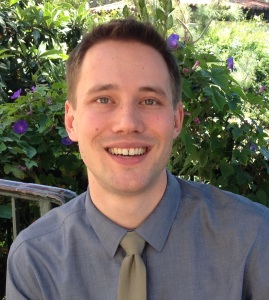Healthy Nonprofits Program’s Christopher McConkey tells us about the civil justice shortfall and the need for free legal assistance.
We asked our Staff Attorney Christopher McConkey to give us his insight on why it’s necessary for organizations and programs in the legal sector to transform the civil legal aid delivery system.
Guest Blogger: Christopher McConkey, OneJustice Staff Attorney for the Healthy Nonprofits Program
![[Photo: Huffington Post]](https://onejusticeblog.files.wordpress.com/2015/09/o-justice-facebook-e1441744429264.jpg)
Photo Credit: Huffington Post
There is a phenomenon in our society where people who are less able to afford legal help are often the people who need it the most. These low-income individuals struggle every day to find the legal assistance they need to preserve basic life necessities like housing, health care, economic security, and child custody.
This is not a minor phenomenon. Over 60 million people in the United States might qualify for free civil legal services because they live at or below 125% of the federal poverty guidelines. However, people are less likely to access these services due to limited resources, mental health issues, and inexperience with our legal system.
Worsening this crisis, insufficient funding prevents many legal aid programs from serving 50% or more of the people who actively seek their help, leaving attorneys to address less than 20% of lower-income people’s legal needs.1 All of these shortfalls ultimately leave low-income individuals without critical legal assistance.
The Civil Justice Shortfall
The civil justice shortage is especially acute in California. As a legal aid attorney right after law school, I encountered hundreds of people slowly moving from one legal services project to another with the same issues. The recurring problem was program capacity. Staff attorneys reached full caseloads, projects offered fewer services to help more people, and funders carved programs to reflect their priorities. Even waves of talented and eager volunteers could expand an organization’s capacity only superficially, and only to a point.
I recall a monthly legal clinic I helped coordinate in Los Angeles. This clinic aimed to reduce an overwhelming and countywide need for immigration legal aid. The immigration attorneys who volunteered–I was not one of them–helped numerous lower-income Angelenos to understand and pursue their legal options. Limited capacity, however, left some clients on the waitlist for months. Those who persevered accessed expert immigration services for free. Those who dropped off the waitlist continued the long search for assistance or, worse, gave up.
For the clients who received assistance, legal help gave them their safety, jobs, family cohesion, dignity, and peace of mind; I could see happiness in their eyes. To me, this clinic exemplifies why finally eliminating the justice gap is worth our collective effort, resources, and ingenuity.
Transforming the Legal Services Sector through Innovation
As with all solvable problems, we should be optimistic! Our resourceful and morally ambitious society can overcome this justice shortfall. More funding is necessary, but for now, we can and should innovate additional ways to expand legal services for people who are lower-income.
OneJustice is already strengthening California’s legal services infrastructure to provide greater access to the legal system. In the Healthy Nonprofits Program (“HNP”), we are supplying nonprofit management consulting, legal technical support, and public policy advocacy to legal services organizations throughout the state.
Additionally, we help connect hundreds of public-interest-minded law students to nonprofit and government employers every year. We are invigorating legal nonprofits while enhancing the environment in which they operate—all so we can transform the legal services sector.
Individual attorneys will close the justice gap one client at a time. Several factors can coalesce to make that possible: additional funding, robust nonprofit management, public policies that value legal services organizations, and the gumption to innovate strategies that will solve one of the most stubborn justice crises of our time.
1 For more information about this civil justice gap, please see the Legal Services Corporation’s report titled Documenting the Justice Gap in America: The Current Unmet Civil Legal Needs of Low-Income Americans

As a Staff Attorney in the Healthy Nonprofits Program, Chris helps guide legal services organizations on matters of nonprofit law and management. He also advocates for public policies that foster the growth of legal nonprofits and–through them–meaningful access to justice for all Californians. In this way, his work bolsters California’s infrastructure for civil legal assistance at the organizational and systemic levels. As part of his role, Chris provides legal support for OneJustice’s consulting and policy work. Additionally, he provides policy briefings and advocacy for OneJustice’s statewide community of legal services organizations.
![[Photo: Legal Services Nonprofit leaders discussing trainings.]](https://onejusticeblog.files.wordpress.com/2015/09/1038-cropped.jpg)